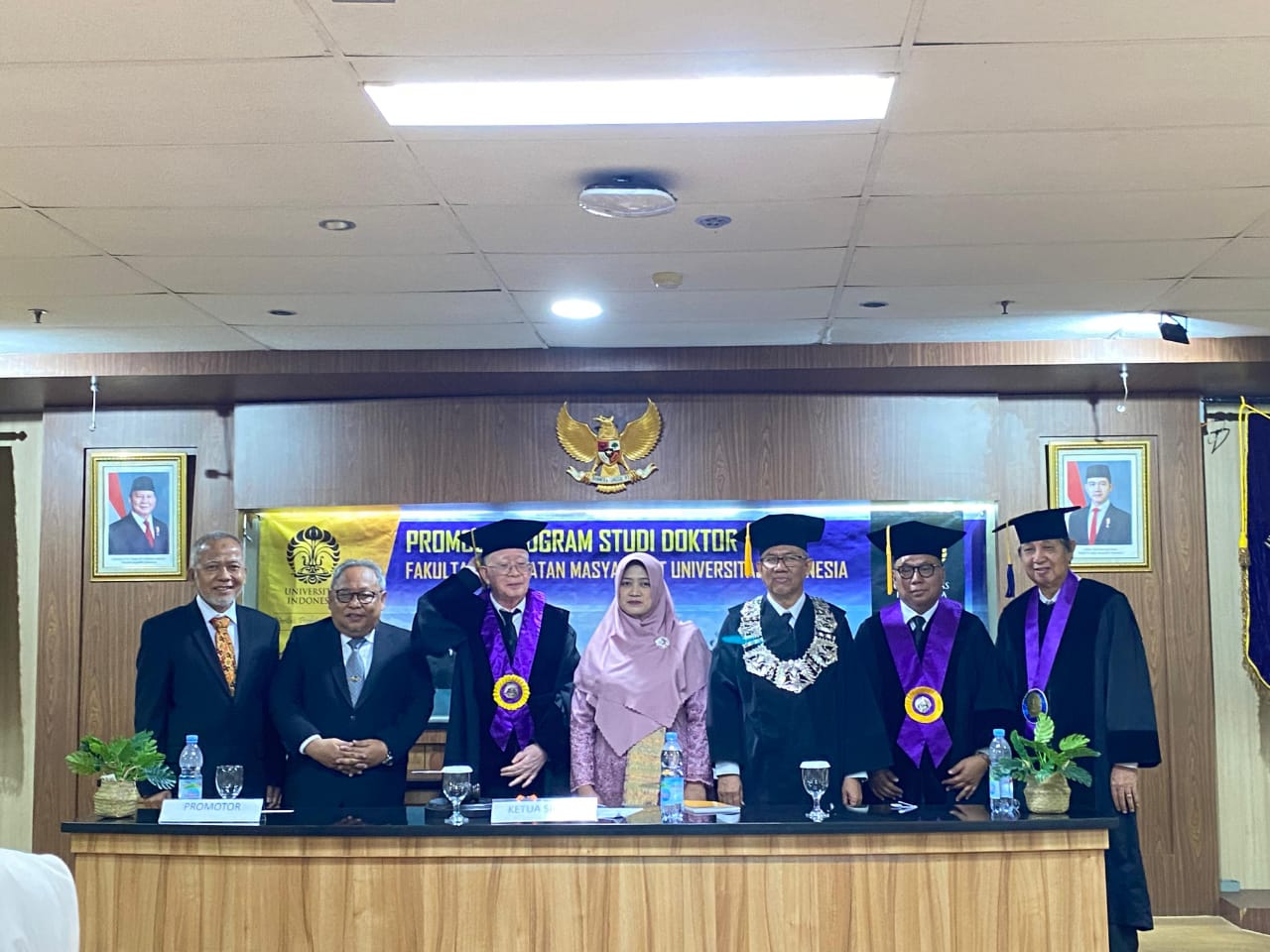On Saturday, July 5, 2025, Novita Rudiyanti officially earned her Doctoral degree in Public Health Sciences after defending her dissertation titled “The Effectiveness of Health Management on the Capacity of Primary Health Care Facilities in Maternal Complication Referral Services in Lampung Province.” The doctoral promotion session was held at the Doctoral Promotion Room, Building G, FPH UI.
This research stems from the importance of health management in improving the quality of primary health care, especially in emergency obstetric referral services (EmOC). These services play a crucial role in saving the lives of pregnant women experiencing complications and are a vital part of efforts to reduce maternal mortality.
However, evidence shows that delays still occur in decision-making, initial treatment, and the referral process to hospitals. These three types of delays—commonly known as the Three Delays—are major contributors to the high risk of maternal death, particularly in areas with limited access and inadequate capacity at primary health care levels.
Using an explanatory sequential mixed-methods approach, Novita examined maternal referral services from the pre-referral phase to the referral delivery process, focusing on three main indicators: early complication detection, stabilization care, and referral delivery. These were used to measure the effectiveness of preventing Type I delays (delay in seeking care) and Type II delays (delay in reaching healthcare facilities).
The study was conducted across several community health centers (Puskesmas) and midwife practices in Lampung Province. It found that around 80% of patients with maternal complications were at risk of experiencing Type I and II delays. This was primarily due to the limited service capacity of primary health facilities. The overall service capacity for maternal referral was only 19.7%, broken down as follows: early complication detection capacity at 48.4%, stabilization care capacity at 35.3%, and referral delivery capacity at 43.6%. These findings indicate that the maternal referral system in the area remains suboptimal, falling far short of the ideal service standards.
In her presentation, Novita Rudiyanti emphasized that strengthening referral information systems, improving facility accreditation, and enhancing healthcare workers’ competencies are key factors in improving maternal referral services. Furthermore, community empowerment in childbirth preparedness and community-based health initiatives were also highlighted as critical elements to support service success.
Novita’s doctoral promotion was overseen by an examining committee comprising Prof. Dr. Drs. Sutanto Priyo Hastono, M.Sc.; Prof. dr. Agus Suwandono, M.P.H., Dr.PH; Prof. dr. Endang L. Achadi, M.P.H., Dr.PH.; Dr. Pujiyanto, S.K.M., M.Kes.; Dr. Sudibyo Alimoeso, M.A.; and Trisari Anggondowati, S.K.M., M.Epid., Ph.D.; with Prof. Dr. Budi Utomo, M.P.H., Ph.D. as the main promoter and Dr. Dian Kusuma, S.K.M., M.P.H., Sc.D. as the co-promoter.
(ITM)

